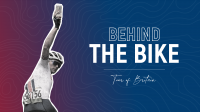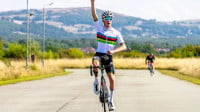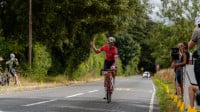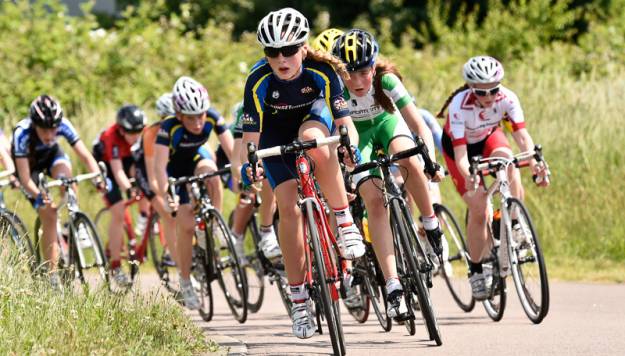British Cycling recently released details of its Women’s Road Racing Workgroup, which was formed early in 2018 with the aim of improving competitive road cycling for women.
The formation of the group – and the survey carried out among riders to identify potential improvements – is the latest step by the governing body to attempt to narrow and eventually eradicate the acknowledged, historic gender gap within cycling.
One of the experiences that the group is trying to address is that of Deena Blacking, who got into cycling after excelling on two wheels during triathlons, but found competitive racing difficult to break into.
She explains:
“There wasn’t a lot of ‘sign-posting’ to races, and the women’s racing scene wasn’t always friendly. I think my second ever race had a 2nd category rider (riders are assigned a category between Elite and 4th category based on licence points) and a handful of 4th cats – it seemed like a slightly pointless experience as the 2nd cat rode off the front and the rest of us dawdled around the circuit, almost like the blind leading the blind.”
Jenny Gretton leads the Women’s Road Racing Workgroup, and says that this has been a common theme in the feedback they’ve received.
“Many riders have made requests for training sessions to develop their bunch riding skills and tactical awareness, in preparation for racing,” she explains.
“The social aspect of these sessions has also proved very important in the past, with riders going on to race and train together. This is now a key project for our regional staff to develop around the country, alongside the introduction of more entry-level competition.
“The current classification system for women’s races can make the search for events very challenging, as it uses the term ‘women only’,” Jenny continues. “We plan to introduce more detailed event classification for women, which will lead to an improved search facility and more balance to the racing calendar.”
She adds: “British Cycling has never shied away from the gender participation gap within cycling, and Deena’s experiences highlight why some women may have been put off riding. Our women’s strategy – of which the Women’s Road Racing Workgroup is part – has been geared towards overcoming the barriers that still exist to female participation in cycling.
“Thankfully, we now have some wonderful female role models who prove on a regular basis their strength, skill and ability as bike riders. The steps that we are putting in place through the Women’s Road Racing Workgroup will help to build the standard and profile of women’s racing, so that these role models are even more visible and cycling continues towards being a sport of equality.
“We’re under no illusions that we still have a long way to go to make this happen, but we’re extremely grateful to the likes of Deena, who have helped us to identify the areas in which we can make genuine improvements.”

Happily, Deena continues to enjoy plenty of positive experiences, racing with CC London for the past two years, completing a solo tour of Italy last year and coaching road and more recently track cycling, with a particular focus on supporting young girls to cycle and race competitively.
During the summer, Deena was involved in the running of a girls-specific cycling course for Hackney youth riders. Seeing the demand for these girls-only sessions, Deena has started to run girls-specific coaching and inspiration sessions for young female riders at CC Hackney on a regular basis, most recently running an event with special guest Karen Tostee, a formidable female racer who was the 3rd woman in the 2017 Transcontinental Race and a friend of Deena’s through racing.
In 2019 Deena will be racing for CC Hackney, hoping to inspire more of the girls she coaches to do the same.
Also an accredited marshal, Deena supports road racing in the central and eastern regions, as well as volunteering at club time trials and circuit races.
Deena has clear advice for those women wanting to follow her into competitive racing.
She adds:
“The London Women’s Racing League was really helpful in getting me into racing in 2016, particularly the race-training days that they put on at the start of the season. This is a really positive way for women to transition smoothly and safely into racing, and creates an environment in which women can meet others in a similar situation.
“However, I remember hearing Lizzie Deignan being interviewed once after a race, and when asked about ‘what it’s like to be a woman racer’, she responded with exasperation, asking why she had to talk about being a woman, as opposed to just being able to talk about racing bikes.
“I would love if we could get to the point where women’s racing was just another race to be watched, talked about, sponsored and celebrated in the way that we spectate and follow men’s bike racing; however for the moment, until we reach that point, it’s vital that we nurture and proactively support women’s cycling with female-specific events and opportunities as the way forward to equality.”









